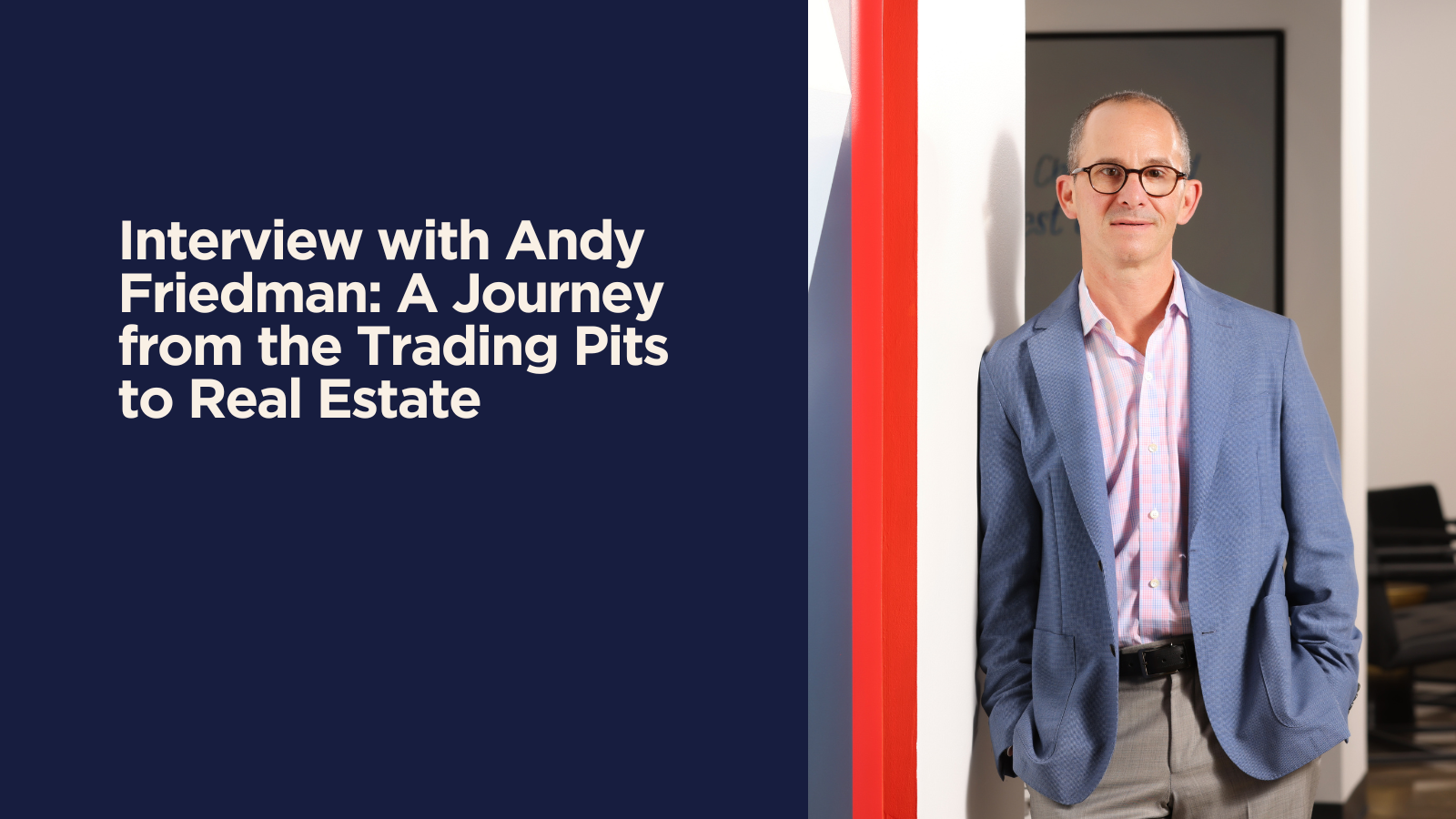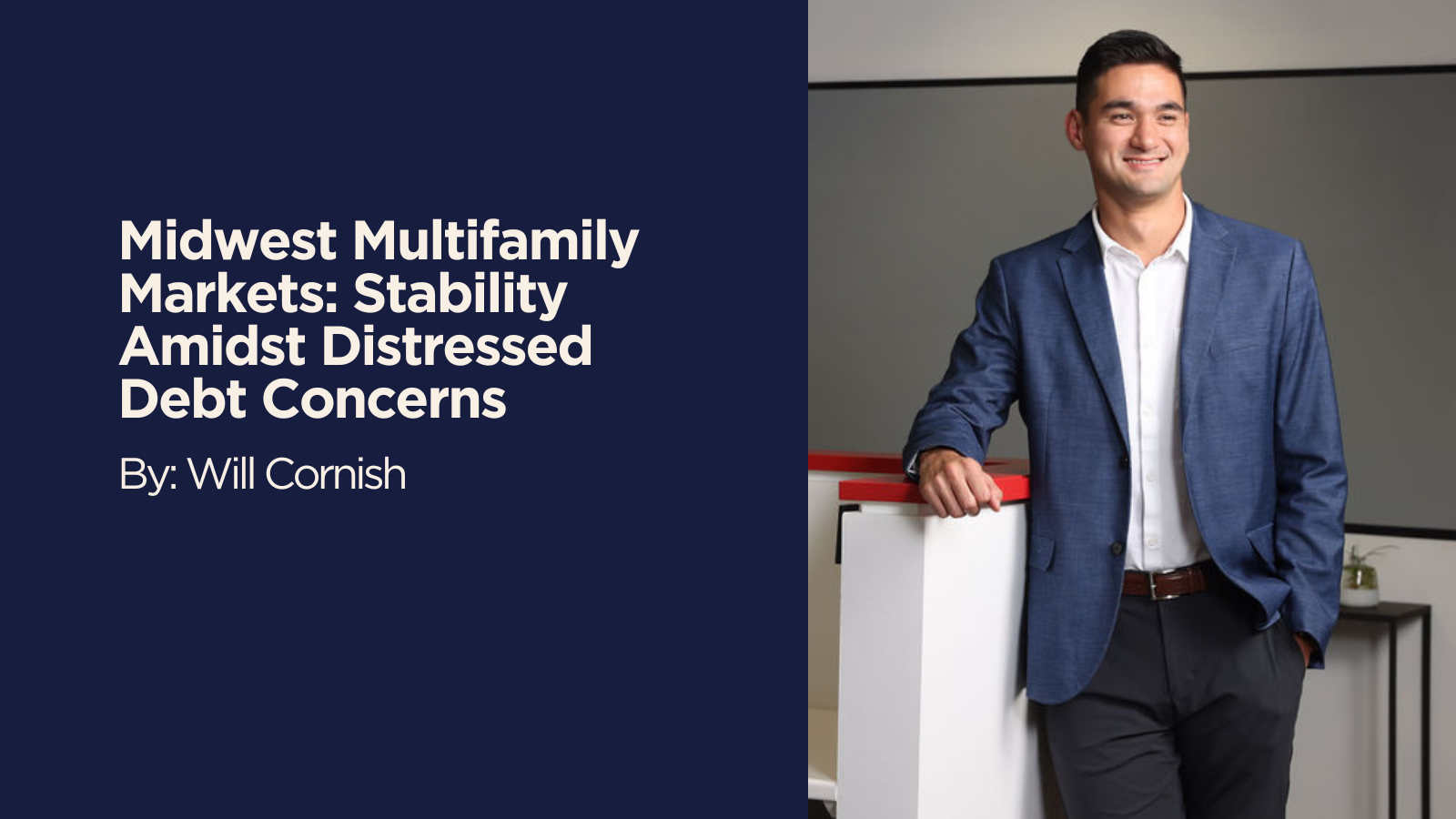08.27.24
Interview with Andy Friedman: A Journey from the Trading Pits to Real Estate

In this interview with Andy Friedman, we delve into his dynamic career transition from the intense world of financial trading to the multifaceted realm of real estate. Read on to explore how Andy’s background in trading shaped his approach to real estate and what he has learned along the way.
Kiser Group: Can you talk about your career before joining Kiser Group?
Andy Friedman: My first job out of college was as a stockbroker in Arizona. I loved it, but I became very fascinated with the trading side of financial markets. After about a year, I moved to Chicago to become a trader. I started clerking in the currency pits at the Chicago Mercantile Exchange and after a few months went through the membership process so that I could be a trader in the S&P 500 futures pit. It was not easy to get started but trading came pretty naturally to me and I loved the adrenaline rush. I traded my own account, and if I made money on any given day, it appeared in my account the next day. If I lost money, my account was that much smaller the next day. Instant gratification, the exact opposite of real estate.
Kiser Group: So you were down in the pits, doing the hand signals?
Andy Friedman: Yes, I was. It was an intense environment with 300+ people packed shoulder to shoulder, screaming and using hand signals to communicate. Organized chaos. I was one of the more animated traders in the pit, and CNBC filmed a “day in the life” feature with me. Trading in the pits was an incredible way to make a living, but seven hours a day of screaming took a toll on my voice, and I became a frequent visitor to the throat doctor.
Kiser Group: What motivated you to switch from trading?
Andy Friedman: The move was out of necessity. Trading as I knew was ending as the world transitioned to the computer screen. It was a daunting prospect as “Pit Trader” on a resume didn’t exactly open doors. I had always been interested in multifamily real estate, primarily due to my father’s history of multifamily ownership. This inspired me to enter brokerage, and I eventually joined Kiser Group.
Kiser Group: What were some challenges you faced when transitioning to brokerage?
Andy Friedman: Starting over in a new career was humbling and intimidating. I went from being respected on the trading floor to cold calling building owners who didn’t know me from a hole in the wall. Initially, I felt like a pest, but over time I learned the market and started to provide value. It was tough to build credibility from scratch, but as I gained knowledge and experience, it became easier to engage with clients and have meaningful conversations about the market.
Kiser Group: What misconceptions did you have about the brokerage industry?
Andy Friedman: I initially thought brokers were just there to open doors and show properties. I quickly learned that brokers play a vital role in the commercial real estate industry, far beyond simply facilitating tours. We create inventory, build financial models and marketing packages, see and solve for potential issues before the sale process begins, work with attorneys and lenders during escrow, and guide clients through to a close. How a broker handles the process from start to finish can make the difference between a smooth transaction or a chaotic one. This realization helped me overcome the initial challenges and appreciate the importance of our work.
Kiser Group: Do you have any advice for someone considering a career change into real estate?
Andy Friedman: Humility is key. You need to accept that you’re starting over and to be prepared for a long ramp-up to success. Ego can be a significant barrier, especially if you were successful in a previous career. It’s essential to be patient, let go of past accomplishments, and focus on learning and building new skills. Surrounding yourself with supportive colleagues and mentors can also make a big difference.
Kiser Group: What significant changes have you seen in the real estate market since you started?
Andy Friedman: There have been significant market cycle swings in the last few years, primarily driven by COVID-19. In just a few years we saw doom and gloom turn to fed-induced euphoria, followed by widespread loan defaults and more doom and gloom. As the market eyes an impending fed easing cycle, optimism has returned. With that said, the fundamentals of the industry—relationships, market knowledge, and hard work-remain unchanged. Technological advancements have made some tasks more efficient, but the essence of the business still revolves around personal connections and expertise.
